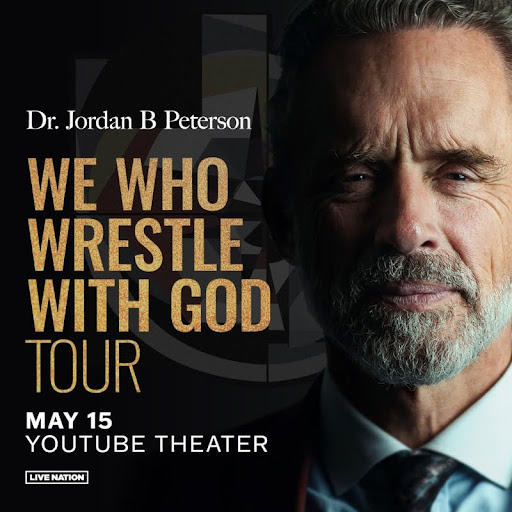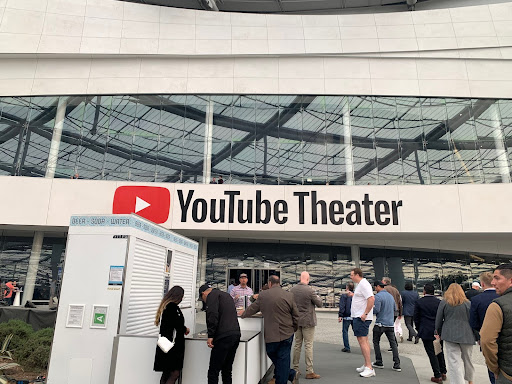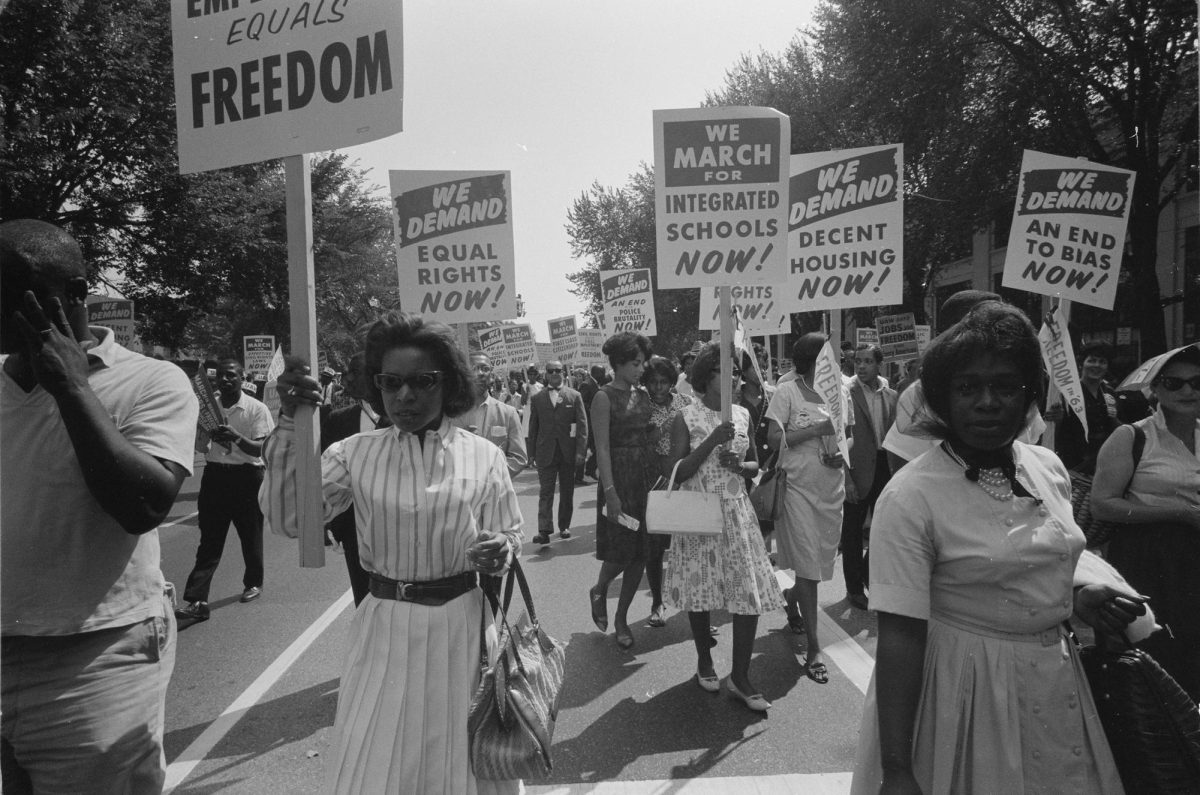This past Wednesday, I had the privilege to attend the first night of Dr. Jordan B. Peterson’s We Who Wrestle With God Tour at the Youtube Theater in Inglewood.
Those unfamiliar with his works may have heard of the self-help book that became popular in 2018, 12 Rules For Life: An Antidote to Chaos. As Dr. Peterson practiced as a clinical psychologist in Canada and was a professor at the University of Toronto and Harvard University, the book is a great culmination of guiding principles. Among those include “set your house in perfect order before you criticize the world,” and pursue what is meaningful, not what is expedient.” As visible on the book covers, since 2023, it has reached over 10 million copies sold.
He has since written and published a continuation of the aforementioned bestseller, Beyond Order: 12 More Rules For Life, and most recently We Who Wrestle With God in 2024.

My exposure to Dr. Peterson’s ideas and exploration of society and culture have come mostly through podcasts on YouTube, Spotify, and Instagram, and occasionally through other books where he is referenced by various other thought leaders, and sometimes collaborates with them. Some of these influential thinkers include Jocko Willink (Jocko Podcast), Joe Rogan (Joe Rogan Experience), Charlie Kirk (The Charlie Kirk Show), Michael Knowles (The Michael Knowles Show), Lex Fridman (Lex Fridman Podcast), Dr. Andrew Huberman (Huberman Lab), and Chris Williamson (Modern Wisdom Podcast).
Although many of these individuals mentioned above practice religions, I mostly listen to their commentary on self-improvement, politics, and current events that happen to be from a secular perspective. Dr. Huberman is a neuroscientist at Stanford University offering health advice, and Mr. Willink typically discusses the importance of discipline in the context of the military—religion just is not discussed that much, and if it is, it is not a comprehensive analysis of it.
However, the ideas that were discussed in Dr. Peterson’s new book grappled with the omnipresence of the Bible in society and how humans and civilizations have evolved alongside it. Unlike other Christian books like the works of Christian apologetics (I recommend reading God’s Crime Scene by Detective J. Warner Wallace) or The Daily Stoic by Ryan Holiday (which I explored last year in this article), it seems to take a more nuanced perspective on the effects of the Bible on mankind.
In his interview with Bonhoeffer author Eric Metaxas, he discussed the importance of faith, especially in times of cultural strife. Therefore although his wife and daughter are both Christian, I was somewhat shocked to find out he has not proclaimed his faith. Furthermore, as seen here many Christian leaders consider his work to be “missing an important piece.”
A man who attended Dr. Peterson’s event in Omaha, Nebraska echoed a review of the novel written by another critic, who cited C.S. Lewis’s work Mere Christianity.

The latter described Dr. Peterson as the epitome of the self-proclaimed teacher that Lewis wrote about when discussing “the Great Sin” of pride, specifically saying that he is someone who can:
“appeal to a boy’s Pride, or, as they call it, his self-respect, to make him behave decently: many a man has overcome cowardice, or lust, or ill-temper by learning to think that they are beneath his dignity—that is, by Pride.”
However, regardless of one’s opinion on this criticism of him or the book, his speech was an eye-opening experience for many.
Instead of taking a “Christian” perspective or a “Secular” perspective, Dr. Peterson acknowledges what we have known to be true: the Bible is the most important, influential, and enduring piece of writing in human history, and explores how that shapes who we are.
In Inglewood, Dr. Peterson was greeted with a standing ovation on stage after a performance by musician David Cotter and an introduction by his daughter Mikhaila (Peterson) Fuller. He opened by expressing awe at how 5,000-6,000 people were able to be organized, in other words, the improbability of the situation at hand. He then transitioned into discussing various stories in the Bible, including Jonah’s disobedience that led to his encounter with the Leviathan, a backtrack to what Cain and Abel’s story meant to humanity, as well as his opinion that full participation in voluntary sacrifice was the true meaning of “faith.”
Here are some of my takeaways from his speech:
- Sin: The word “sin” is related to archery and akin to “missing the mark” or making a mistake, how humans have interpreted wrongdoing has affected the foundational beliefs of civilizations.
- Matthew: The philosophy of “an eye for an eye” is always eventually destructive and should be cast aside in favor of forgiveness, and “loving thy neighbor.”
- Jacob’s Ladder: Humans must pursue the pathway that “establishes the covenant between Man and God.
- Job: tortured by Satan, stripped of all material possessions from him, still decides not to lose faith in God and within himself despite his suffering and injustice. He was called to maintain faith no matter what happened and was blessed even more than he was before.
- The Passion (in Latin: to suffer) of Jesus: The “least deserving person undergoing betrayal and torture and punishment in its worst form, young, while being the target of the unjust mob and the worst of the tyrants facing a catastrophic death in front of the people that he loves.” He sacrificed himself out of love for mankind. Mustang Elijah Masters (11) states, “Even though many do not accept this gift of free forgiveness, Christ did it anyway because he wants to have a relationship with everyone.
- The Crucifix: voluntary willingness to accept that fate.
Like Cain, Jonah, Jacob, and even Job who was completely obedient, all wrestled with God, we as citizens of the world should examine our heritage starting with the root of it all: the Bible.

































